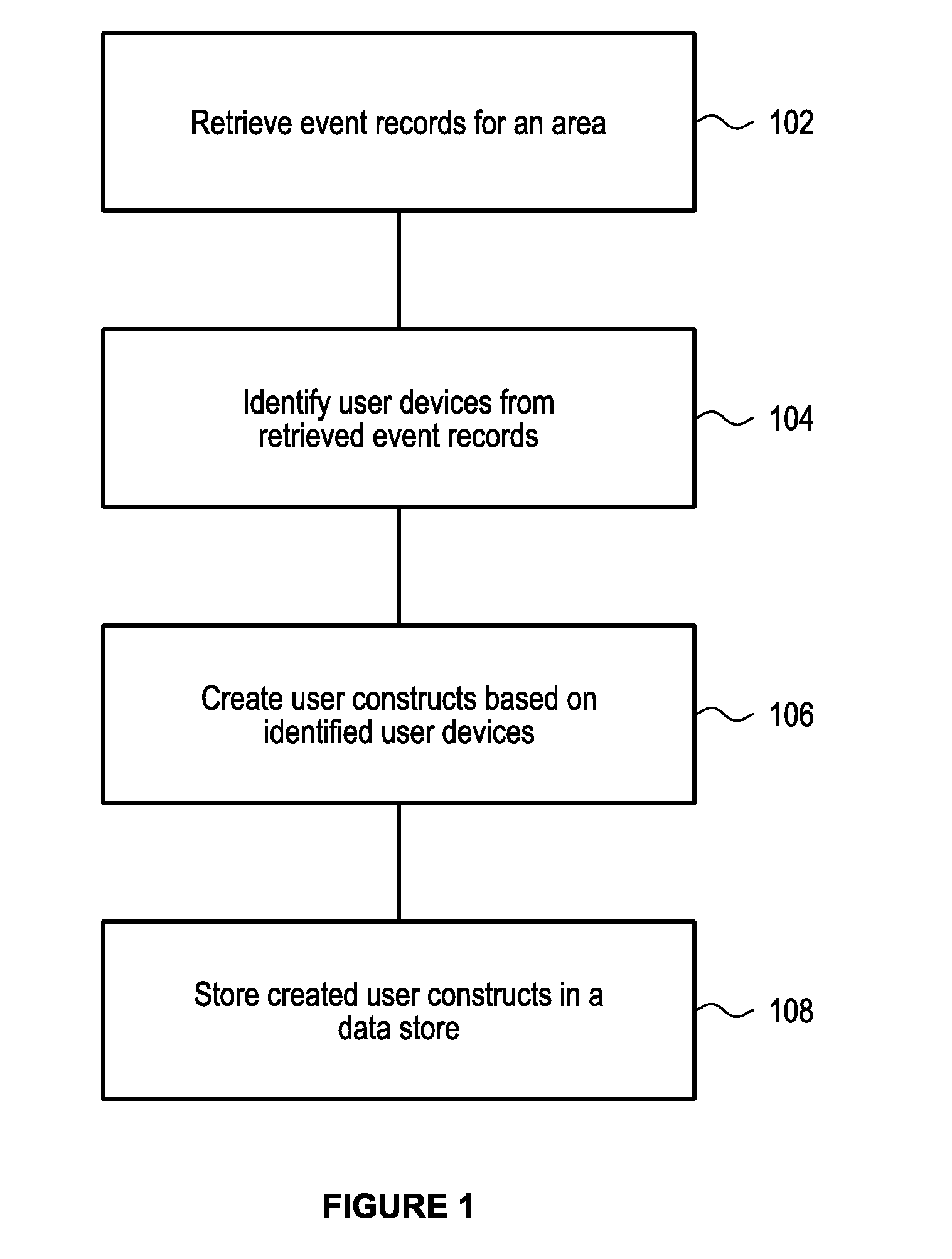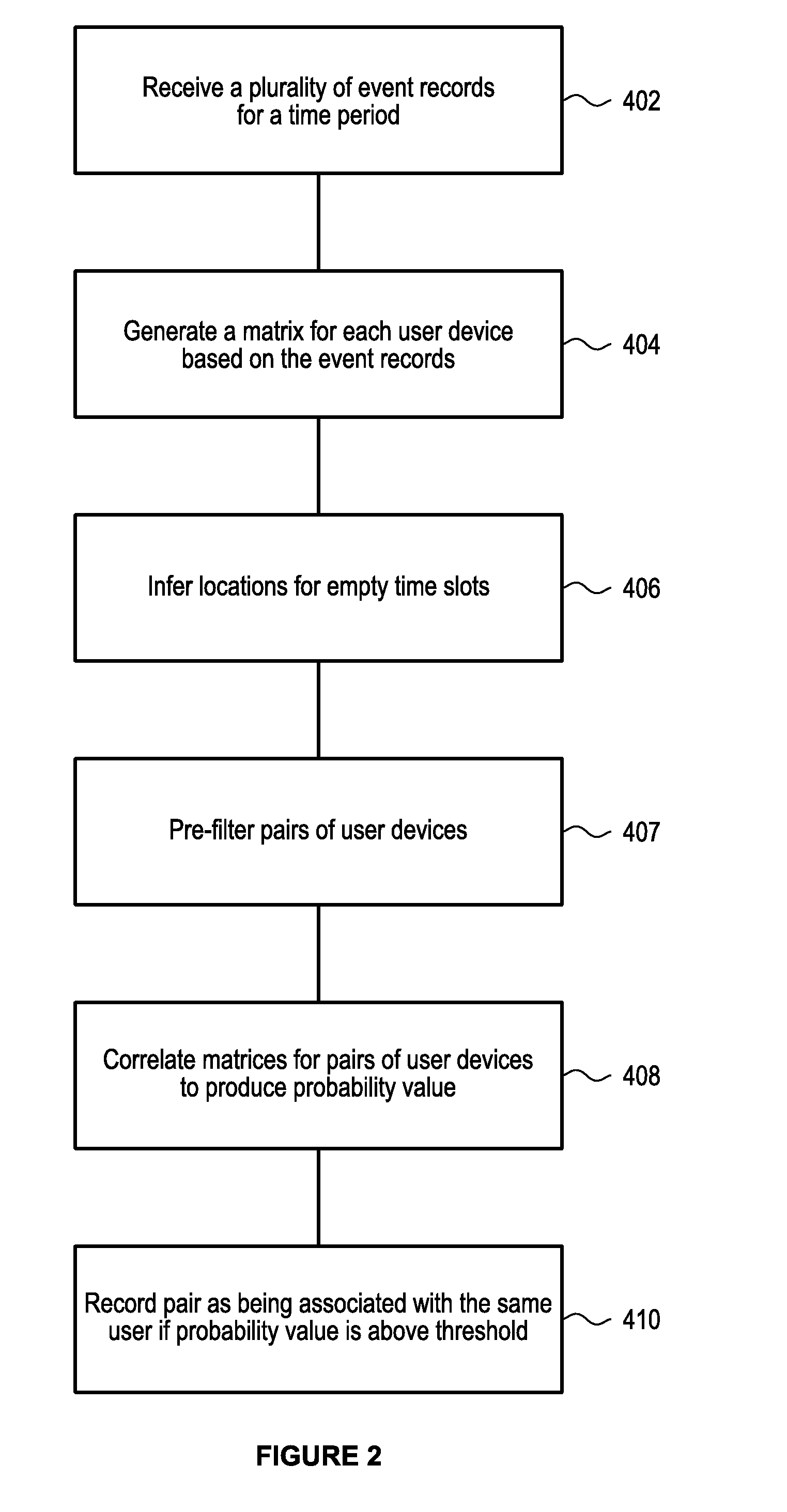Multiple device correlation
a multi-device, correlation technology, applied in the direction of probabilistic networks, instruments, location information based services, etc., can solve the problems of time-consuming initial data collection, poor performance of subsystems, prone to a large number of false positives and false negatives, etc., to achieve accurate user counts
- Summary
- Abstract
- Description
- Claims
- Application Information
AI Technical Summary
Benefits of technology
Problems solved by technology
Method used
Image
Examples
Embodiment Construction
[0036]In order to achieve any useful footfall analytics, the relevant data must first be gathered. In practice, the vast majority of people carry one or more devices with them which communicate with a base station (or telecommunications node) for mobile services and the like. Typically, a device communicates with the nearest base station.
[0037]Based on this, if a device is connected to a base station, it can be reasoned that the device is located within the area around the base station which is closer to the base station than to any other base station. This analysis can be modelled mathematically using a Voronoi algorithm to divide a large aeoaraohical area with a plurality of base stations into cells. Of course, other methodologies can be used to map mobile telecommunication cells and / or communication coverage areas into geographical areas. Each cell can therefore be mapped to a geographical area which will typically be centred on the base station.
[0038]The base station can be a co...
PUM
 Login to View More
Login to View More Abstract
Description
Claims
Application Information
 Login to View More
Login to View More - R&D Engineer
- R&D Manager
- IP Professional
- Industry Leading Data Capabilities
- Powerful AI technology
- Patent DNA Extraction
Browse by: Latest US Patents, China's latest patents, Technical Efficacy Thesaurus, Application Domain, Technology Topic, Popular Technical Reports.
© 2024 PatSnap. All rights reserved.Legal|Privacy policy|Modern Slavery Act Transparency Statement|Sitemap|About US| Contact US: help@patsnap.com










